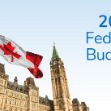While Canada has no gift or inheritance tax, any potential tax on a foreign inheritance or gift will depend on the country it comes from. It’s also dependent on the type of gift and whether it was gifted while the donor was alive or after their death. Let’s take a closer look at some of the more common issues you might face when receiving a foreign inheritance or gift.
Living gifts can mean double the tax
With inter vivos gifts (those made while the donor is still alive), if there’s a mismatch between the tax rules of Canada and the country your foreign inheritance or gift is coming from, this could result in double taxation and other tax inefficiencies.
Here’s an example: Mr. Canuck and his daughter, Ms. Canuck, both live in Canada. Mr. Canuck gives his daughter his American vacation home, which he bought for C$250,000 and which is now worth C$350,000.
In Canada, Mr. Canuck would have to report the $100,000 capital gain on his tax return, as if he’d sold the property. His daughter’s property is now deemed to be worth $350,000 (its cost base) and she will pay tax on any future income or capital gains she receives from it.
Meanwhile, a gift tax is imposed on non-residents who gift U.S.-based property. Apart from a small exclusion of US$17,000 (in 2023) per recipient, the remaining fair market value of the property is taxed at up to 40%. This gift tax cannot be recovered by claiming a foreign tax credit in Canada. Mr. Canuck will need to pay both the U.S. gift tax and the Canadian tax.
From a U.S. tax perspective, Ms. Canuck receives the gift valued at her father’s cost base. When she sells the property, she will have to pay tax on the capital gain that her father already paid tax on in Canada. Given these complicated tax issues, it’s generally not recommended to gift U.S. property; these issues can be avoided by simply selling the property and gifting the after-tax proceeds.
Tax obligations on inherited gifts
When you receive a foreign inheritance, there could be tax or reporting obligations, because most countries have some form of estate, inheritance or death tax. These taxes must be paid before inheritances can be given out.
Generally, in Canada, anyone who receives a gift or inheritance will not have to include this in their income.
For tax purposes, the inherited property has a cost base equal to its value at death. Any subsequent income earned or gains realized will need to be included when you file your Canadian tax return.
You would need to declare a foreign inheritance of property with a cost of $100,000 or more, on form T1135 (this also applies if the gift brings your cumulative foreign property to over $100,000). You’d also have to declare any income earned from any foreign property, regardless of its cost.
A foreign inheritance in cash
Sometimes, your foreign inheritance might include money that the deceased’s estate earned as income after their death. In this case, you may have to pay tax on it in its country of origin, as well as in Canada, where it would be classed as part of your worldwide income. A foreign tax credit may be available to recover the foreign tax paid.
Canada’s tax rates are often higher than those of most other countries, so it’s usually better for the estate to pay tax on the income in the other country and then distribute after-tax proceeds.
If the foreign estate sells its assets and gives the after-tax proceeds in Canadian currency to the beneficiaries, there will be no Canadian tax consequences. However, if your foreign inheritance is given in foreign currency, you may have to report any exchange gains after converting it into Canadian dollars.
For example: you receive 100,000 euros when the euro is worth C$1.40 but convert the money into Canadian dollars when the euro’s worth $1.45. The gain of $5,000 would have to be reported as income, in the year you made the currency conversion.
Inheriting foreign securities
When you receive foreign securities (stocks, bonds, mutual funds, etc.) as an inheritance, their cost base is set at the fair market value in Canadian dollars at the time you receive them. It’s easy to determine the value of publicly traded shares, but private company shares may need a formal valuation.
If you receive dividends from foreign investments, the company will be required to withhold tax at source and remit the tax in its own country. Any income or gains made from the sale of these investments will also be taxed in Canada. A foreign tax credit may be available to help offset the Canadian tax payable.
A foreign inheritance in pension funds
Special rules apply for foreign inheritances of pension plans that fall under the definition of a “foreign retirement arrangement” (this includes most U.S. IRAs). Any amount received could be subject to tax in the foreign country and must be included in the beneficiary’s income in Canada. If tax was already paid in the foreign country, a foreign tax credit may be available to offset the Canadian tax.
Inheriting foreign real estate
If you inherit foreign property, the cost base will be set at its fair market value at the time you received it (be sure to keep valuation documentation, you may need it). If the valuation is in foreign currency, convert it into Canadian dollars the day you receive it. How you use the property will determine how you must report it:
If you rent out the property, your tenant may have to withhold and pay local tax from the rental payments. Also, you may have to file a return and report income and expenses in your property’s country; taxes would be paid there first and then again in Canada. You might be able to claim a foreign tax credit.
If the foreign property is only for personal use, you won’t need to report it. If you sell the property, you may be able to claim a principal residence exemption to shelter the gain from Canadian tax. Each family can only claim one property as its principal residence however, so it could make sense to reserve this option for the property with the largest average annual gain, or for the Canadian property, given that the foreign home will be subject to unrecoverable foreign tax.
Most countries have rules regarding non-residents selling properties. Generally, the buyer must withhold part of the proceeds and the non-resident must file a return and pay tax on the gain (and the gain must also be reported on your Canadian tax return). A foreign tax credit may be claimed for the foreign taxes paid.
Inheritance from a foreign trust
If you receive money from a foreign-based trust, you may need to report it on form T1142, if not immediately, certainly once the estate is administered and you start receiving the money the following year.
Understanding the tax implications of your foreign inheritance
As we’ve seen, tax on foreign inheritances can be complex and costly. It makes sense to consult with tax specialists who are familiar with the rules both in Canada and the country your inheritance is coming from.
If you expect to receive a foreign inheritance any time soon, contact your IG Advisor. They’ll be able to work out what impact this gift could have on your financial plan, as well as its potential tax consequences. If you don’t have an IG Advisor, you can find one here.
Written and published by IG Wealth Management as a general source of information only. Not intended as a solicitation to buy or sell specific investments, or to provide tax, legal or investment advice. Seek advice on your specific circumstances from an IG Wealth Management Consultant.









